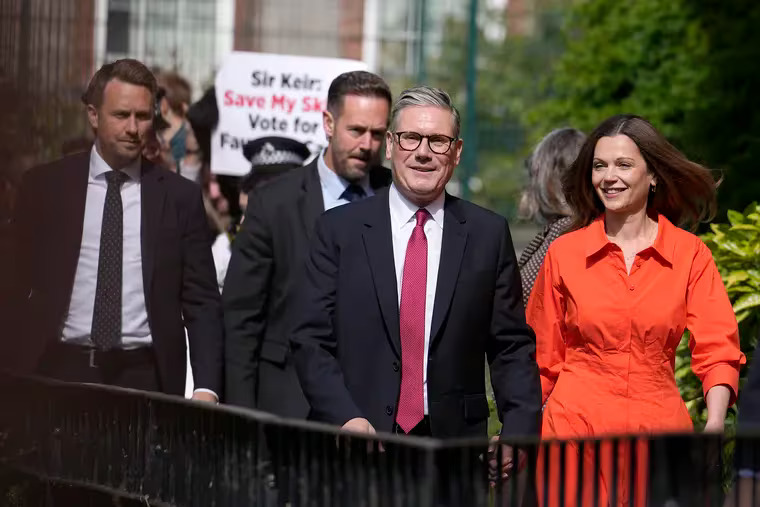Greetings, America! As Britain gears up for an important election, it’s not the typical royal drama involving Princes William and Harry, but rather a significant political moment. This election, taking place on July 4, could potentially end the Conservative Party’s 14-year reign and bring the Labour Party back to power.
Polls will open at 7 a.m. Thursday and close at 10 p.m. Instead of electing a president, Brits will choose 650 new members of parliament (MPs). The leader of the party with the majority in the House of Commons becomes the Prime Minister after meeting with the king. The new PM moves into 10 Downing Street immediately, as there is no transition period like in the U.S.
The election follows a turbulent period in British politics post-Brexit, with frequent changes in Conservative leadership. Theresa May, Boris Johnson, Liz Truss, and now Rishi Sunak have all faced challenges and controversies. Sunak, the current PM, called a snap election despite his party’s declining popularity.

Britain’s Election on July 4th Marks Labour vs. Conservatives in Critical Vote
In Britain, a Prime Minister can call an election within a five-year period, often at a strategically favorable moment. Sunak, a wealthy former finance minister, is up against Labour’s Keir Starmer, a former top public prosecutor who has repositioned Labour towards the center and is leading in the polls.
The campaign has been marked by both parties avoiding substantial issues. Labour claims it has plans to boost the economy, while the Conservatives warn of potential tax hikes under Labour. Sunak has faced criticism for missteps, including leaving a D-Day event early for a TV interview, while Labour has been relatively steady but uninspiring.
Nigel Farage, a significant force in British politics, has re-entered the fray, leading the right-wing Reform UK party. Although Reform is unlikely to win many seats, it could split the Conservative vote and impact the overall result. Farage’s involvement adds another layer of complexity to an already dynamic election.
Both Starmer and Sunak are closely watching the U.S. election, with Starmer favoring Biden but maintaining connections with Trump’s team. The British leaders’ interest in U.S. politics reflects the ongoing influence and aspiration for stronger ties with America.
